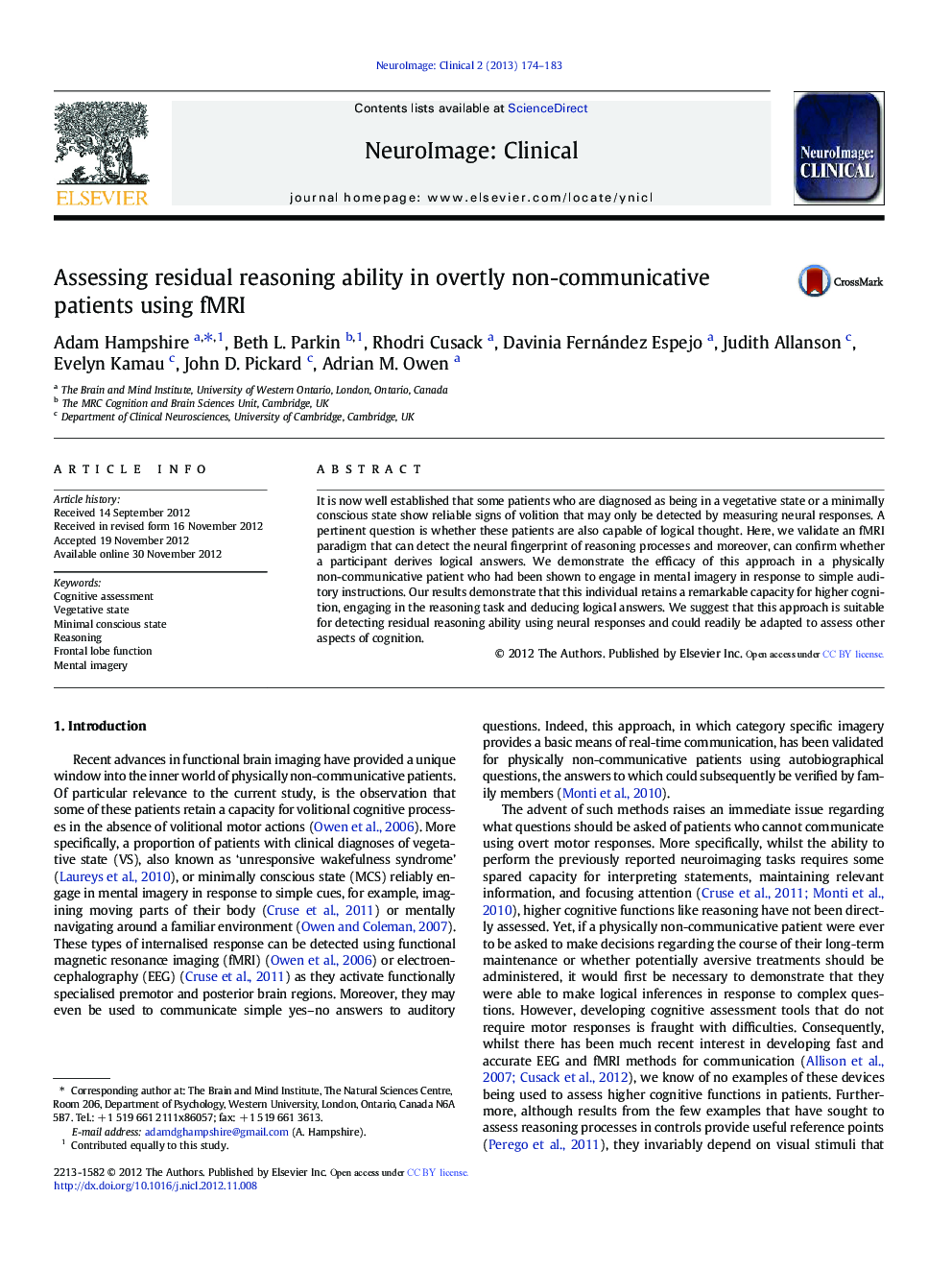| Article ID | Journal | Published Year | Pages | File Type |
|---|---|---|---|---|
| 3075501 | NeuroImage: Clinical | 2013 | 10 Pages |
It is now well established that some patients who are diagnosed as being in a vegetative state or a minimally conscious state show reliable signs of volition that may only be detected by measuring neural responses. A pertinent question is whether these patients are also capable of logical thought. Here, we validate an fMRI paradigm that can detect the neural fingerprint of reasoning processes and moreover, can confirm whether a participant derives logical answers. We demonstrate the efficacy of this approach in a physically non-communicative patient who had been shown to engage in mental imagery in response to simple auditory instructions. Our results demonstrate that this individual retains a remarkable capacity for higher cognition, engaging in the reasoning task and deducing logical answers. We suggest that this approach is suitable for detecting residual reasoning ability using neural responses and could readily be adapted to assess other aspects of cognition.
► Hampshire et al. develop a paradigm for assessing reasoning ability using fMRI alone. ► Inferior frontal sulcus activation is used as a marker of engagement in reasoning. ► Visual and pre-motor activation is used to detect logically correct answers. ► An overtly non-responsive patient is able to solve grammatical reasoning problems. ► Frontal lobe sub-regions activate at distinct stages of the reasoning task.
